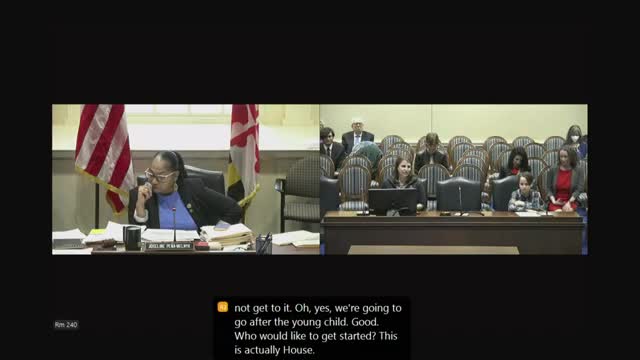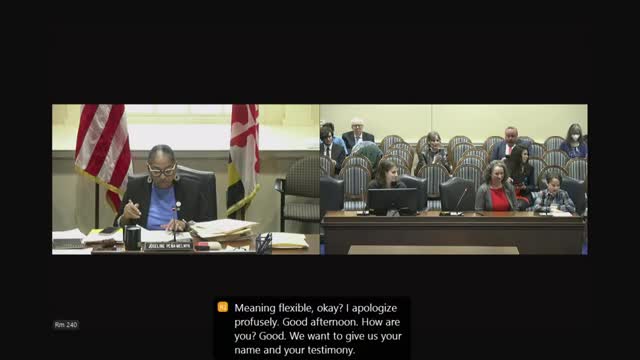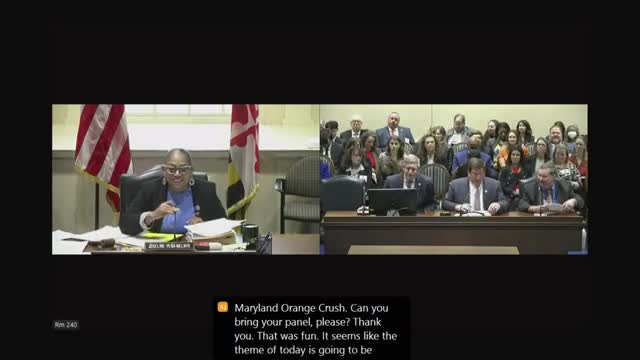Article not found
This article is no longer available. But don't worry—we've gathered other articles that discuss the same topic.

Committee hears bill to name chromite Maryland's state mineral; student and state geologist testify

Delegate urges recognition of October as Italian American Heritage Month, cites local history and entrepreneurs

Panel backs naming the purple pitcher plant Maryland’s state carnivorous plant, citing conservation value

Supporters tell committee officially naming May Maryland Native Plant Month would aid nurseries and pollinators

Bipartisan bill to recognize Muslim and Jewish American heritage months wins broad support in committee hearing

